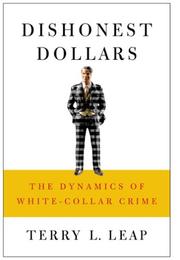| Listing 1 - 3 of 3 |
Sort by
|
Book
ISBN: 0801460808 9780801460807 9780801449796 0801449790 Year: 2011 Publisher: Ithaca : ILR Press,
Abstract | Keywords | Export | Availability | Bookmark
 Loading...
Loading...Choose an application
- Reference Manager
- EndNote
- RefWorks (Direct export to RefWorks)
U.S. health care is a
Fraud --- Medical care --- Delivery of health care --- Delivery of medical care --- Health care --- Health care delivery --- Health services --- Healthcare --- Medical and health care industry --- Medical services --- Personal health services --- Public health --- Corrupt practices --- kickbacks, illicit referrals, overcharging and double billing, upcoding, unbundling, rent-a-patient, pill-mill schemes, insurance scams, short-pilling, off-label marketing, pharmaceuticals, rebate fraud.

ISBN: 0801445205 150173296X 1501732951 Year: 2007 Publisher: Ithaca, New York ; London : ILR Press,
Abstract | Keywords | Export | Availability | Bookmark
 Loading...
Loading...Choose an application
- Reference Manager
- EndNote
- RefWorks (Direct export to RefWorks)
In an environment where corporate scandals fill the headlines and ethics courses have suddenly become standard fare in business schools, Terry Leap offers welcome insights into and useful ways of thinking about a critical problem that permeates our society. His main contribution is an integrative model of white-collar crime, which smoothly incorporates influences from sociology, psychology, public policy, and business. As he explains the process that occurs across the many different categories of crimes within organizations, he finds that there are more similarities than differences between "criminals in the suites" and "criminals in the streets."Leap's definition of crimes within organizations and the people who commit them are laid out in his first chapter. He then goes on to discuss the causes of and events surrounding white-collar crime, types of crimes and criminals, the decision-making processes of white-collar criminals, and the impact of these crimes. His concluding chapter predicts future trends in corporate crime, including an explanation of why we are likely to see more crime in health care. Throughout, Leap presents numerous specific examples and cases-from famous meltdowns such as Enron and WorldCom to less-publicized incidents including a weight-loss franchisee mislabeling doughnuts as low fat and a CEO of a South Carolina regional transportation authority misusing taxpayer money for lavish meals, personal expenses, and world travel.
Book
ISBN: 1501728962 9781501728969 9781501728976 1501728970 9781501728952 1501728954 Year: 2018 Publisher: Ithaca ; London : ILR Press, an imprint of Cornell University Press,
Abstract | Keywords | Export | Availability | Bookmark
 Loading...
Loading...Choose an application
- Reference Manager
- EndNote
- RefWorks (Direct export to RefWorks)
Understanding the risks involved in hiring new faculty is becoming increasingly important. In Managing Risk in High-Stakes Faculty Employment Decisions Julee T. Flood and Terry Leap critically examine the landscape of US institutions of higher learning and the legal and human resource management practices pertinent to college and university faculty members. To help minimize the potential pitfalls in the hiring and promotion processes, Flood and Leap suggest ways that risk management principles can be applied within the unique culture of academia.Claims of workplace harassment and discrimination, violation of free speech and other First Amendment rights, social movements decrying unequal hiring practices, and the growing number of non-tenure track and adjunct faculty, require those involved in hiring and promotion decisions to be more knowledgeable about contract law, best practices in hiring, and risk management, yet many newly appointed administrators are often not sufficiently trained in these matters or in understanding how they might be applied in an academic setting. Human resource departments, hiring committees, department chairs, and academics seeking faculty jobs need resources such as Managing Risk in High-Stakes Faculty Employment Decisions now more than ever.· Outlines critical issues affecting U.S. higher education· Analyzes the social and psychological biases that can arise during hiring, promotion, and tenure decisions· Discusses contract and constitutional law from the perspective of institutions of higher learning· Illustrates complex interactions that shape contractual, constitutional, and collegial issues in institutions of higher learning· Examines contract rights and controversies for tenured and tenure-track faculty· Describes how risk management processes can help to deal with these complicated, but critical, issues· Addresses constitutional issues associated with academic freedom and free speech on campus· Investigates the nebulous, but important, issue of collegiality· Discusses the future for institutions of higher learning in hiring faculty
College teachers --- Tort liability of universities and colleges --- Universities and colleges --- Academicians --- Academics (Persons) --- College instructors --- College lecturers --- College professors --- College science teachers --- Lectors (Higher education) --- Lecturers, College --- Lecturers, University --- Professors --- University academics --- University instructors --- University lecturers --- University professors --- University teachers --- Teachers --- Tenure --- Law and legislation --- Selection and appointment --- Legal status, laws, etc. --- Faculty --- Legal status, laws, etc --- E-books
| Listing 1 - 3 of 3 |
Sort by
|

 Search
Search Feedback
Feedback About UniCat
About UniCat  Help
Help News
News